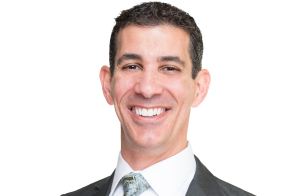Aligning Metrics with Mission
Of course, the value of data lies not in collection, but in how we apply it. That’s why at Vituity we always focus on connecting frontline decisions to measurable outcomes. What’s our readmission rate—and which interventions reduce it? How is staffing acuity aligned with census today, not last quarter? Which moments in the patient journey drive satisfaction or frustration?
This is where dashboards come to life. Our real-time data systems are designed not just for the C-suite but also for frontline leaders: the practice administrators managing shift coverage, the medical directors overseeing throughput, and the navigators coordinating follow-up care.
For example, Vituity created a real-time dashboard to measure what we call “discharge efficiency,” a daily tracker that has a direct impact on length of stay (LOS) by measuring efficiency of inpatient flow. When our hospitalist teams achieve an average 25% discharge efficiency, average LOS will sit at around four days. This impacts hospital finances through increased capacity, improved efficiency, and lower cost per patient.
But data alone isn’t enough. Leadership must model transparency, curiosity, and a willingness to let numbers tell the story—even when it’s uncomfortable. At Vituity, we coach our partners to lead with data as a tool for empowerment, not oversight. Accountability follows naturally when teams trust and know how to use the data.
From Insight to Action: EQI in the Field
One of our most impactful patient experience programs is eQI, a digital quality improvement platform. It delivers real-time patient feedback via text and email, surfacing insights on everything from wait times to provider communication. This feedback is visible not just to executives but also to the teams delivering care. That visibility creates a culture of service recovery, rapid learning, and pride in improvement.
At Providence Holy Cross Medical Center, emergency department satisfaction scores actually rose dramatically during the pandemic — at the same time such scores were plummeting nationally. That success was partly driven by eQI, which helped the team round on patients more effectively and respond to concerns in real time before they escalated.
And it doesn’t stop with survey scores. Higher patient satisfaction translates into better online reviews, stronger brand reputation, and higher reimbursement under value-based models. In other words, when we listen to and act on what patients tell us, everyone wins.
Elevating Navigation with AI
Another critical application of data is in our care navigation programs. When piloted at five Illinois hospitals, Vituity’s care navigation model reduced high utilizer ED revisits by 53% and 90-day all-cause readmissions by 22%, connected patients to timely outpatient care, and generated over $2.4 million in savings across five sites.
Today, that model has evolved into Rely Health, our AI-powered navigation company, which pairs human empathy with automation. Rely uses an algorithm to identify patients who would benefit from follow-up, engages them via text and phone, schedules appointments, and assists with insurance enrollment when needed. The result? Fewer gaps in care, better outcomes, and more efficient resource use.
A Call to Disrupt — Together
This is the disruptive transformation our industry needs—technology that enhances human touch, scales intelligent workflows, and pays dividends across clinical and financial domains.
We’ve done it before. We’re doing it now. Let’s keep pushing forward—together.























